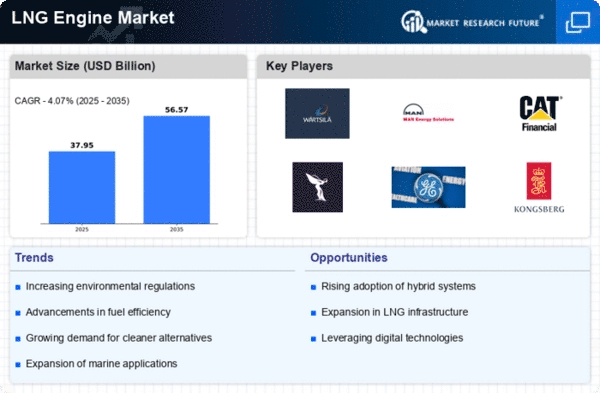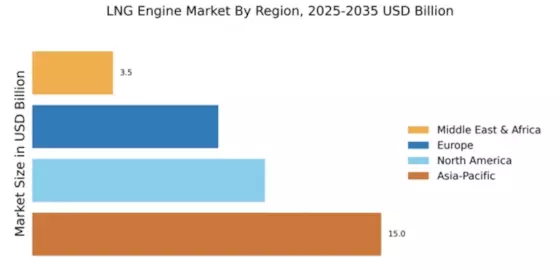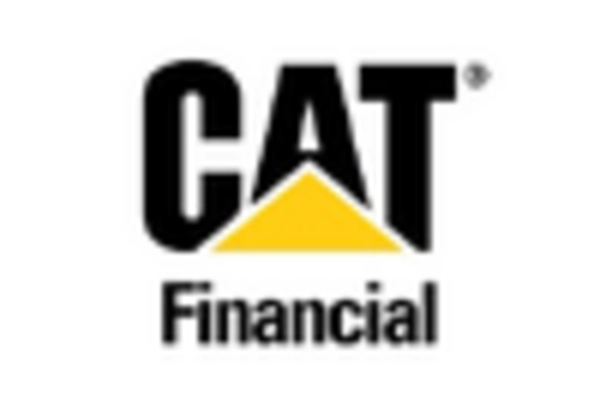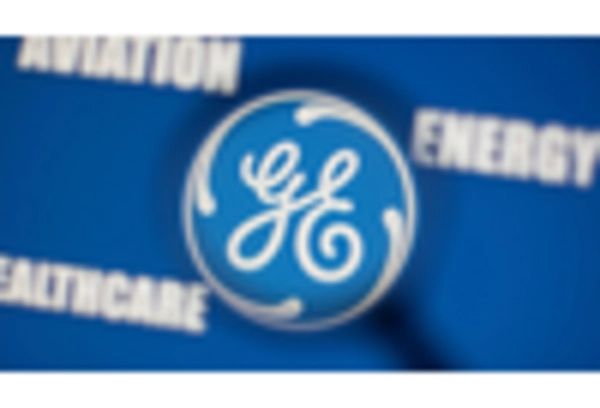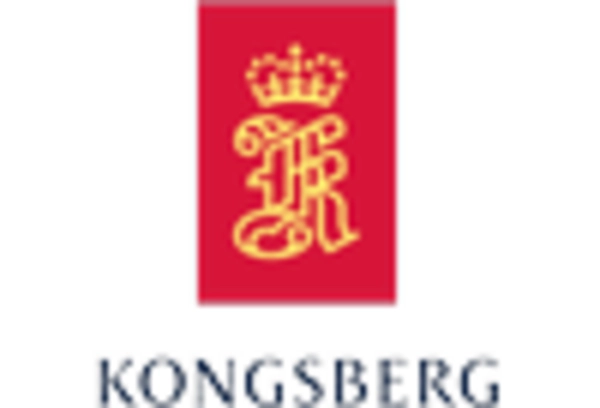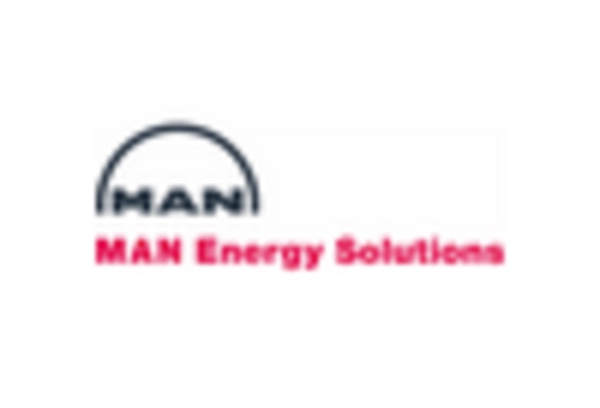North America : Innovation and Growth Hub
The North American LNG engine market is projected to reach $10.0 billion by 2025, driven by increasing demand for cleaner energy solutions and stringent environmental regulations. The region's focus on reducing greenhouse gas emissions is propelling investments in LNG technology, making it a key player in the global market. Additionally, the rise in natural gas production and infrastructure development supports this growth trend.
Leading countries like the US and Canada are at the forefront, with major companies such as Caterpillar Inc. and GE Marine driving innovation. The competitive landscape is characterized by a mix of established players and emerging startups, all vying for market share. The presence of key players ensures a robust supply chain and technological advancements, further solidifying North America's position in the LNG engine market.
Europe : Sustainable Energy Transition
Europe's LNG engine market is expected to reach $8.0 billion by 2025, fueled by the EU's commitment to sustainability and reducing carbon emissions. The region is witnessing a shift towards cleaner fuels, with LNG being a pivotal part of this transition. Regulatory frameworks, such as the European Green Deal, are catalyzing investments in LNG technology, enhancing market growth and adoption.
Countries like Germany, Norway, and the Netherlands are leading the charge, with significant investments from key players like MAN Energy Solutions and Wärtsilä. The competitive landscape is robust, with a mix of established firms and innovative startups. The presence of these key players ensures that Europe remains a leader in the LNG engine market, driving technological advancements and sustainable practices.
Asia-Pacific : Emerging Powerhouse in LNG
Asia-Pacific is the largest LNG engine market, projected to reach $15.0 billion by 2025. The region's rapid industrialization and urbanization are driving demand for cleaner energy solutions, with LNG engines being a preferred choice for various applications. Government initiatives promoting LNG adoption and investments in infrastructure are key growth drivers, positioning Asia-Pacific as a leader in the global market.
Countries like Japan, South Korea, and China are at the forefront, with major players such as Mitsubishi Heavy Industries and Hyundai Heavy Industries leading the market. The competitive landscape is dynamic, with both established companies and new entrants striving for innovation. This vibrant ecosystem fosters technological advancements, ensuring that Asia-Pacific remains a dominant force in the LNG engine market.
Middle East and Africa : Resource-Rich Frontier
The Middle East and Africa LNG engine market is projected to reach $3.47 billion by 2025, driven by increasing energy demands and a shift towards cleaner fuels. The region's abundant natural gas resources are being leveraged to promote LNG technology, supported by government initiatives aimed at diversifying energy sources. This transition is crucial for meeting both local and global energy needs.
Countries like Qatar and the UAE are leading the way, with significant investments in LNG infrastructure and technology. The competitive landscape includes key players such as Kongsberg Gruppen and ABB, who are focusing on innovation and sustainability. This growing interest in LNG solutions positions the Middle East and Africa as an emerging market with substantial growth potential in the LNG engine sector.


